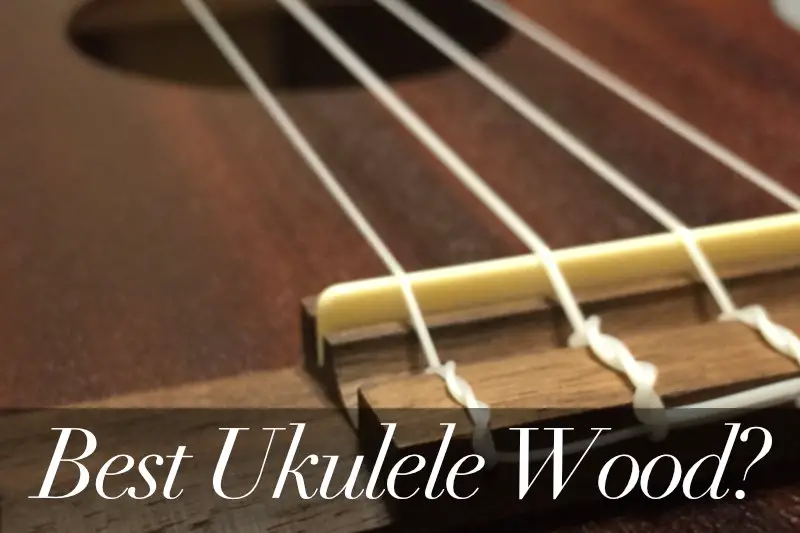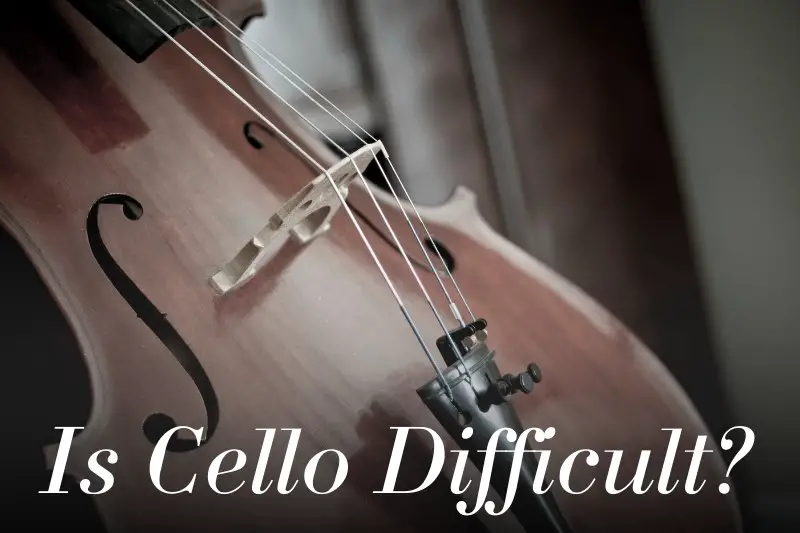Learning to play an instrument at an older age
There are so many reasons why someone might want to learn to play an instrument at 40, or 60, or 90. Learning an instrument in your 20s can bring a long lifetime of enrichment and fun. But the benefits of learning an instrument as an adult are numerous and important. But what’s the easiest instrument to learn for adults? That all depends on you.
There are the obvious reasons why someone would want to learn to play an instrument at any age. You look cool. People want you to go to their parties. You can probably make a ton of money on YouTube. The possibilities are endless. But what about those other, more mundane reasons, like heath and happiness? Let’s have a look, and then we’ll get into some of the best instruments to learn as adults.
Science of learning an instrument for the brain?
A neurogenesis and neuroplasticity article in HuffPost says the following about music and the brain:
Some of the articles on our site contain affiliate links. We're careful about what we review and recommend. As an Amazon Associate, we may earn something small from qualifying purchases. Thanks for the support!
The association of motor actions with specific sounds and visual patterns leads to the formation of new neural networks.
If you’ve always wanted to learn an instrument, consider brain growth as a motivator to get you started.
Yes, please! As we all hear more and more stories about Alzheimer’s and other degenerative diseases, we all want to know more about how we can fight them off. So many of us, including myself, are looking for ways to improve memory, slow the aging process of the brain, and improve cognitive function.
Well, science seems to be saying more and more these days that learning, and learning a musical instrument in particular, can be very beneficial for our brains.
Playing music to lower stress levels
Can music lower stress levels too? Well, it clearly can have a significant impact on us in both a positive and negative way. So, while it depends in large part on what type of music you’re playing or listening to, the answer is pretty clear, yes music can affect our stress levels.
A report in the Stanford News states that “listening to music seems to be able to change brain functioning to the same extent as medication, in many circumstances.”
That’s amazing! It’s also very exciting for folks who want different ways to manage their stress levels. And that’s just listening to music. Imagine what actively playing music could do.
There is this feeling that comes over you when you’re playing a song you’ve been working on for a while and you’re starting to get it. It’s an interesting mixture of concentration, relaxation, excitement, and maybe even a little pride. You feel this focus that isn’t forced. It feels calming and exhilarating at the same time. It’s wonderful.
Emotional benefits of learning an instrument as an adult
Even without the scientific evidence, we know that music can lift our spirits and make us feel things that almost nothing else can.
Even listening to something soothing and quiet can help calm us when we need it. So, imagine what actively playing music that makes us happy, inspires us, or makes us want to sing or jump can do for our mood. And when you add in the community aspect of playing music with others, you’re supercharging those emotional benefits.
So, where does that leave us? What is the best instrument to learn for adults?
Best instrument to learn at 50
The melodica, obviously.
But seriously, let’s have a look at some of the amazing options that might suit an adult who’s wanting to learn to play an instrument at an older age. I’m being specifically deliberate with this list. Rather than include lots and lots of possibilities, this is a smaller list of great instruments that I would recommend for a friend to learn music with. Clearly, this is my opinion, and your mileage may vary. These are also instruments that I’ve learned at different stages of my life. Definitely all of them I picked up after turning 30. A couple were much later. I hope you find something here that piques your interest.
I’ve chosen the instruments in this list because they all have several important qualities in common. They’re all easy to find and purchase. They have communities of players behind them, so you can find others learning the same thing you are. And, they are complicated enough to get that good brain juice flowing. Enjoy!
Melodica
Clearly we are baised toward the awesomeness of the melodica here. But, in a contest of easiest instrument to learn for adults, it truly is a winner. A couple of the main things that stand out about the melodica and how great it is are the fact that it can go anywhere with ease, and that you can improve not only hand and finger dexterity, but also lung capacity.
If you do want to go on to learn piano in the future, melodica is a great place to start. We even wrote about learning how to play piano with a melodica. And if you’re currently learning piano, you can always practice on your melodica if you’re going on a trip or somewhere away from your piano or keyboard for an extended period of time.
One thing about the melodica that made it the perfect instrument for early education in Japan and other parts of Asia is that it is both a keyboard instrument and a woodwind instrument at the same time. You’ll learn how to play a reed-based instrument while learning some of the piano keyboard all at once. You can even play it either with two hands flat on your lap or a table, or held in one hand similar to a trumpet. It’s very versatile. You can even choose the number of keys on a melodica that would fit you best.
The melodica, to me, is a really friendly instrument. It’s simple to start with. It can make almost any type of music, and you can play with others easily. It can also be a very sophisticated sounding instrument once you get some basics down. If you’ve never seen a true professional play the melodica, you have to see this…
Pros:
Super portable and easy to take anywhere
You can play it multiple ways (holding in one hand vs sitting and playing like a piano)
You can learn basic piano skills and music theory
Develops lung capacity
Develops hand dexterity
Plenty of basic tunes to learn for beginners
Cons:
Cheaper models can be more toy-like
Keys on smaller models aren’t as big as a piano
You can see our write up on best beginner melodicas if you’d like to see more models. However, I’d recommend the Suzuki M-37C or the Hohner Melodica.
- Featuring phosphor bronze reeds
- All aluminum covers
- Full 37 note range
- Included accessories: standard mouthpiece, trumpet style mouthpiece, flexible tube mouthpiece, and soft gig bag with handles
- Play in comfort with the ergonmic mouthpiece and key design
- Ideal for beginner musicians as well as advanced players looking for the dynamic range needed for Pop and Rock style music
- A larger range than The Student 26 Melodica, the 32 offers tonal range of f, small octave, c, three-lined octave
- Deluxe carrying case, mouthpiece and instructions included
Ukulele
So, I am also quite biased towards the ukulele. I’ve always loved the simplicity of the instrument and was completely blown away after seeing Jake Shimabukuro play live in concert. Check this out if you’ve never seen him play.
I had no idea the ukulele could be played like that. It was stunning. And another thing is that he’s playing a George Harrison tune, who was madly in love with the ukulele himself.
The other big reason that I got sucked into playing the ukulele is that I moved to Hawaii. The ukulele here in Hawaii is thought of quite differently from the rest of the world. It’s a very serious instrument, and kids often study it the way that kids in other places study the piano.
I started playing the guitar when I was young, but I never really felt as comfortable on it as I did on the tenor ukulele. When I found that size, I was hooked. The soprano ukulele, while amazing in its own right, didn’t feel like a good match for me. Almost immediately after playing the tenor, however, I knew I needed to have one.
Like the melodica, I think the ukulele is super friendly and easy to get into. It’s very easy to learn the basics. While there’s not as much as with piano or guitar, there are loads of YouTube tutorials for whatever kind of music you’d like to play on the ukulele. There are also plenty of music books and teachers who know the instrument well if you want lessons. Also like the melodica, the ukulele is easy to take anywhere, and lends itself well to impromptu jam sessions with friends.
Pros:
Very easy to take with you anywhere
You can start playing songs almost immediately
Easier instrument to play while you’re singing
Only four strings to keep track of
Very versatile, there’s almost nowhere you can’t go musically
Cons:
Can go out of tune relatively quickly, so you have to keep tuning it
Not as much good learning info as with guitar or piano (but plenty to get you going for sure)
For smaller folks with smaller hands, I think a soprano ukulele is just fine. If you have bigger hands, like I do, you’ll want to look into a tenor most likely. Here’s a great bundle I’d suggest for a beginner.
- Agathis body with a satin finish
- Tenor Size
- Rosewood fingerboard and bridge
- Mahogany neck
Piano (or keyboard)
I wanted to include the piano for a few reasons. First, you kind of have to right? It’s the ruler of “what should I learn” instruments. And, there’s a good reason for that actually. It’s one of the easiest instruments to learn basic music theory on, such as chord progressions, scales, etc. Also, so many other instruments, like the melodica, are based on the piano keyboard. So, you port this knowledge over to many other musical instruments.
I’ve dabbled with piano for a really long time. However, it’s only been somewhat recently that a lot of that music theory knowledge, like the circle of fifths, has sunk in and meant anything to me. Since it has, I have had the most fun just playing R&B type chord progressions and using it to relieve stress. It’s amazing.
The main drawbacks to getting an actual piano or a large keyboard or digital piano are the obvious ones, mainly size and weight. Even if you’re just settling on a digital piano, you still need the room for it, and you won’t be taking it to the beach or on vacation.
If those issues aren’t really issues for you, then a good quality digital piano or keyboard can be an amazing investment in your musical journey and your health.
Pros:
Build finger strength and hand dexterity.
Very versatile. Can play other instruments as well.
Lots and lots of available music and courses to learn from.
Cons:
A little harder to move around depending on the size.
Jumping into a full-size piano keyboard can be a bit daunting for some
If the piano is the way you’re going, I would recommend at least 61 keys, and making sure they are weighted keys as well. If you have the room for an 88 key digital piano, do it. Over time, you’ll grow into it. The weighted keys are important because they will lend a “real” piano feel that will also help to keep your fingers stronger than a non-weighted keyboard will.
Here’s a great option for you. This one comes in both 61 and 88 key versions.
- An Electric Piano That’s Tailored to You - Feature-packed Electric keyboard with 88 premium full-sized semi weighted keys with adjustable touch response to suit your preferred playing style
- Premium Sounds - 5 voices (Acoustic Piano, Electric Piano, Organ, Synth, and Bass), built-in FX: Chorus, Reverb, and two built in 20W speakers that deliver crystal-clear, room-filling sound
- All The Right Connections - ¼” sustain pedal input (pedal not included), ¼” stereo headphone output for private practice and stereo RCA outputs for connection to speakers / amplifiers
- Play the Keyboard Wherever You Go - Power via the included power adapter or 6 D cell batteries (not included) for professional piano performance anywhere
Drums
Drums! Crazy kids banging away in the basement right? Maybe not.
I saved the drums for last for a couple of reasons. First, they aren’t all that portable unless you get an electronic drumset. And even then, you’re probably not going to be bringing them to the park to play along with pals. But I also saved them for last because, actually, I’m a drummer if I’m anything in the music world.
I didn’t start playing drums until I had a couple of kids and had been playing guitar for decades. I never really got very good at guitar, but for some reason I took to the drums much more quickly. It didn’t happen immediately. I had my frustrating months before it really clicked, but when it did, it felt amazing.
I do think that drums can be incredible for physical, intellectual, and emotional health. A good, long drumming session can be pretty physically strenuous, but in a good way. And getting your limbs to act correctly, and independently, takes a LOT of practice. I’m sure I built more than a few new neurons at the beginning of my drumming journey.
There’s also something wonderfully cathartic about banging on something and making a lot of noise. You can release the frustrations of the day quite easily in an hour on the drums.
But you can also play them meditatively. Learning to use brushes and to play very quietly is an exercise in patience and care. It can be very calming and relaxing.
The drums, clearly, are not for everyone. But if you’ve thought about it, I say do it. It was one of the best musical decisions I’ve ever made. Good electronic drum kits are relatively affordable and much higher in quality today than they were in years past. You can also play through headphones, so apartment dwellers or those with quiet families can enjoy the drums too.
Pros:
So much fun to play
Great for releasing tension
Good workout
Good for developing timing for other instruments too
Excellent for developing limb coordination
Cons:
A bit more expensive
Not as portable
A bit harder to learn than the other instruments here
Need more space
This is the kit that I picked up not too long ago, and I love it. The mesh pads feel great, and I use it with my computer to get even better drum sounds than it ships with. Recording with this kit is super easy too if you’re dabbling in that.
- Feel The Difference Mesh Makes – All mesh electronic drum Kit heads deliver the most realistic, responsive and immersive playing experience drummers demand
- Premium Eight-Piece Drumset - 8 Inch dual-zone snare pad, (3) 8 Inch tom drums and (3) 10 Inch cymbals: ride cymbal, hi-hat, crash w/choke
- In-Demand Sound - Nitro Drum Module with 40 ready-to-play classic and modern drumkits, 60 play-along tracks and 350 plus expertly curated Acoustic / Electric drumset sounds
- Powerful Educational Features - 60 built-in play-along tracks, sequencer, metronome, Aux input and performance recorder help to hone and develop your drum skills
Find the right solution for you
Get a dog and some fish, take more walks, eat better, get good sleep, and play the melodica. Or, something like that. Insert your favorite animal for dog or fish. Find some other method of movement if walks bore you. Definitely eat better and get good sleep.
You found this article. You were already wondering about the easiest instrument to learn for adults, so you’re already considering picking one up. Music can do amazing things for your life. The barriers to entry are so low with some of these great instruments. They’re affordable, easy to carry around, and “relatively” easy to learn. Even if you’re just learning a couple of super easy tunes, the process of learning and putting sound into the world is incredible. It just feels so good.
If you’re brand new to music, I honestly recommend a good entry-level ukulele or melodica. Who knows, one might lead to the next. Beginner musical instruments can definitely be gateway drugs, in the most positive sense possible. If your obsession actually reduces stress, builds new brain connections, provides a new community of friends, and is a lot of fun…who wouldn’t give that a try?
Last update on 2024-04-24 / Affiliate links / Images from Amazon Product Advertising API








